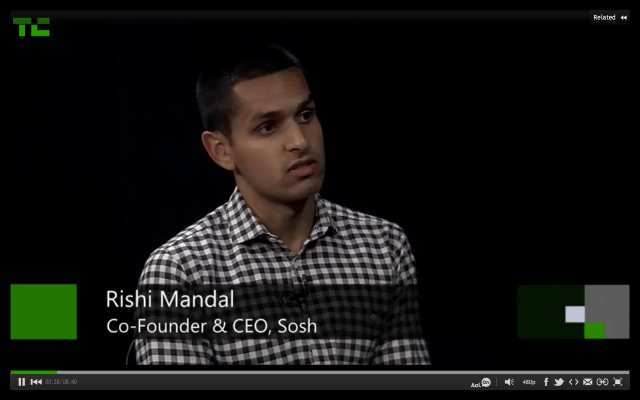Editor’s Note: Semil Shah is an EIR at Javelin Venture Partners and has been a contributor to TechCrunch since January 2011. You can follow him on Twitter at @semil.
“In the Studio” hosts an entrepreneur who, after studying astrophysics, went on to handle various product management roles at a small startup eventually acquired by Google and who know, most recently, helped launch a venture-backed mobile application startup based in San Francisco.
Rishi Mandal, co-founder and CEO of Sosh, has brought a team together to bring real web scale technologies to a mobile form factor and, in all the noise of apps today, has managed to get this product on peoples’ radars. Members of Sosh in San Francisco are already using the service to find out about new things to do in the city and, as Mandal hopes, to get personalized recommendations about new things to do that breaks the monotony of people patronizing the same places. But beyond the pretty web site and slick iPhone app, there is real web technologies powering Sosh, crawling the web, blogs, and forums to structure disparate data around locations and events and create a timely product in the process. This ability, in turn, makes it easier for a service like Sosh to scale to other cities, so much so that the company recently announced it has raised Series A financing.
If you’re building a mobile application, I’d highly recommend watching this short discussion. The fact Sosh has reached Series A financing so quickly, in this market, means they’re doing many things right. In this chat, Mandal and I talk about tactics used to conceive of the app around mental models, how Google searches make powerful research tools, how he and his team picked a daily use case that could translate into a habit, how they used a mix of machine learning and editorial input to fine-tune their web crawler, how they used a “web first strategy” to hack mobile distribution, and how despite all these advances, their approach will be to nurture communities offline in the cities they expand to.
